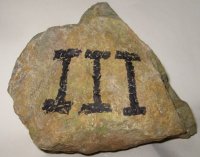Emperical Data on Applied Violence
September 3, 2010
My father grew up during the Great Depression and survived having his ship torpedoed out from under him three different times during WWII in the troop landing assaults on the Pacific islands. He did his best to raise me up to be a proper little English lad, which meant reading lots of Rudyard Kipling’s poems and stories. To this day, my favorite is still a poem written just before the turn of the 20th century, when the sun never sat on the British Empire and hadn’t for many years. It’s not so much about soldiering in the Empire as much as it is about why one goes soldiering in the first place and how you deal with that after wards. By today’s standards, many declare this poem was, like the Constitution, written at a time when peoples’ attitudes and concerns were different than today, so it carries a parental advisory, or just plain has been expunged from most school libraries. Feel free to substitute some currently acceptable and politically correct phrases for any of those that offend your little feelings and you otherwise just can’t get over. It’s called “White Man’s Burden”. I won’t bore you with it; it’s over there on the sidebar if you want to go read it later. As concepts go, it still applies today if you think of the role of the U. S Military in today’s world. It applies to the 53% of us that are still tax payers. And, now that I’m thinking about it, the story fits most of those called The Three Percenters and those of the Restore the Constitution persuasion. Hold on to that thought for just a moment.
Although Rudyard Kipling did write “The Jungle Book”, he didn’t write that poem about the blind men and the elephant, even though people often times give him that credit. John Saxe actually penned that story, for the benefit of the English world, in the latter half of the the 19th century. Its a common story to the many diverse peoples in the region of the subcontinent of India, and they love to use it to point out how easily some people will quickly jump to really unbelievable conclusions based on the scantest of information. Again, I won’t bore you with the verses; they’re over there in the side bar somewhere. Probably been quite some time since you’ve read it to your kids, and it is such a great story from a shared heritage.
So now we have these two story lines. The first about how setting the whole world right is a thankless, full time job that we’re all so thankful somebody is willing to do, even if we have to do it ourselves, one little spot at a time. And the second, about how you can listen to many people giving you their differing views on a subject, even if you’re just as blind as they are.
For Pete:
Why do we do this Restore the Constitution thing? Because somebody’s got to do it and doing nothing isn’t a viable strategy. It won’t make anybody like me, and it sure won’t make me rich. I will make mistakes. It’s “how I see the elephant”. Either I will know I’m doing the right thing while I’m doing it, or I may always wonder if I did the right thing. That is, in real life, the plight of fathers and soldiers, because they don’t want to do this:


September 4, 2010 at 11:18 am
Thanks for all your work!
September 4, 2010 at 2:49 pm
Powerful.
I think you say it perfectly: “somebody’s got to do it and doing nothing isn’t a viable strategy. It won’t make anybody like me, and it sure won’t make me rich. I will make mistakes.”
If I may, I’d add to that, “It will probably get me killed. But if I survive and if the nation is restored, I will never have to hear my grandchildren ask, ‘what were you doing that was so damned important that you let liberty die?’ “